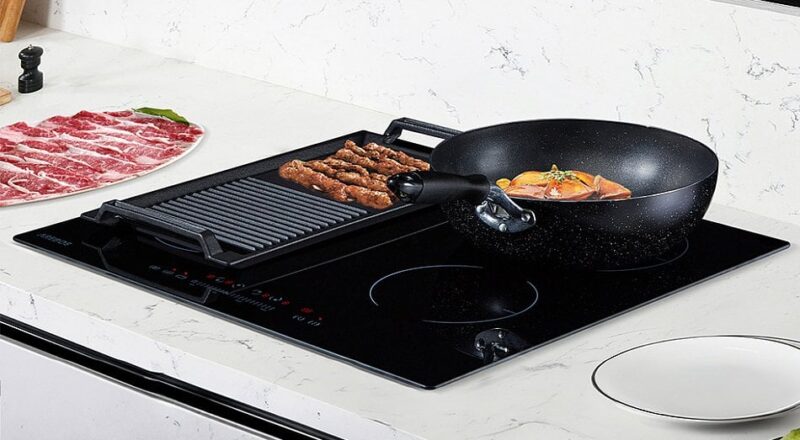In the world of culinary arts, cast iron stands out as a versatile and reliable tool, especially when it comes to high-heat cooking. This article delves into why cast iron is preferred for such tasks and how it continues to be a favorite among kitchen professionals and home cooks alike.
Cast iron has been a staple in kitchens for centuries. Its ability to retain and evenly distribute heat makes it an ideal choice for techniques that require high temperatures, such as searing, frying, and baking. Understanding the nuances of cooking with cast iron can significantly enhance your culinary prowess.

History of Cast Iron Cookware
The history of cast iron cookware dates back to ancient China, where it was first used for cooking. Over time, its popularity spread across the globe, becoming a kitchen staple in various cultures. The durability and versatility of cast iron have allowed it to stand the test of time.
Why Cast Iron is Ideal for High-Heat Cooking
Heat Retention and Distribution
One of the primary reasons cast iron is favored for high-heat cooking is its exceptional heat retention and distribution. Once heated, a cast iron pan maintains a consistent temperature, ensuring that food cooks evenly. This quality is particularly beneficial for searing meats, as it allows for a perfect caramelization without burning.
Versatility in Cooking
From stovetop to oven, cast iron can transition seamlessly, making it suitable for a variety of cooking methods. Whether you’re frying, baking, or roasting, cast iron can handle the task with ease. This versatility is a significant advantage for any cook looking to explore different culinary techniques.
Choosing the Right Cast Iron Cookware
Types of Cast Iron Cookware
When selecting cast iron cookware, you’ll find several options, including skillets, Dutch ovens, and griddles. Each type serves a unique purpose and can enhance your cooking experience. Skillets are perfect for frying and searing, while Dutch ovens are ideal for braising and baking.
Seasoning and Maintenance
Proper seasoning and maintenance are crucial for preserving the quality of your cast iron. Seasoning involves coating the pan with oil and heating it to create a non-stick surface. Regular maintenance ensures your cookware remains rust-free and ready for use. For more tips on uneven browning, check this guide.
Caring for Your Cast Iron
Cleaning Tips
Cleaning cast iron requires a gentle touch. After each use, wash your cookware with warm water and a soft brush. Avoid using soap or harsh detergents, as these can strip the seasoning. Instead, use a paste of salt and water for tough stains.
Preventing Rust
To prevent rust, ensure your cast iron is thoroughly dried after washing. You can also apply a thin layer of oil to the surface to maintain the seasoning. Storing your cookware in a dry place will further protect it from moisture.
Common Challenges and Solutions
Dealing with Cold Spots
While cast iron is known for even heat distribution, cold spots can occur if the pan is not preheated properly. To avoid this, ensure your pan is heated gradually over a medium flame. For more on this, see our guide on cold spots.
Managing Smoke Levels
High-heat cooking can sometimes lead to smoke. To manage this, make sure your cast iron is well-seasoned and avoid overheating. Cooking with the right oil at the appropriate temperature can minimize smoke production. Learn more about this in our article on cast iron smoke.

FAQs
Is cast iron suitable for all stovetops?
Yes, cast iron is compatible with various stovetops, including induction. Its versatility makes it a valuable addition to any kitchen.
How often should I season my cast iron?
It’s recommended to season your cast iron after each use to maintain its non-stick surface and prevent rust.
Can cast iron go in the dishwasher?
No, it’s best to hand wash cast iron to preserve its seasoning and prevent damage.
In conclusion, cast iron is a timeless kitchen essential, especially for high-heat cooking. Its durability, heat retention, and versatility make it a favorite among cooks. By understanding how to care for and use cast iron, you can enhance your cooking skills and enjoy delicious meals for years to come. For more information on how cast iron interacts with different stovetops, you can visit this guide.
This article contains affiliate links. We may earn a commission at no extra cost to you.

